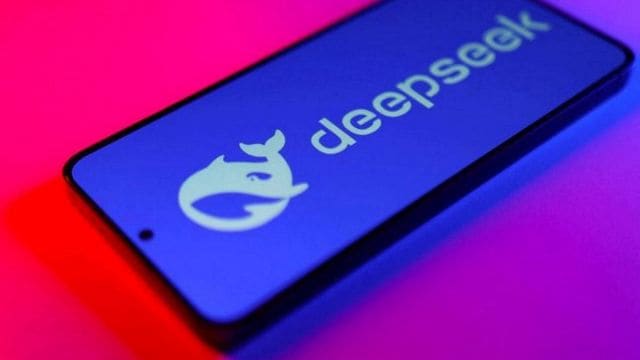DeepSeek unavailable in Italy? Why banning the Chinese AI app is not the only solution
One of the main concerns with DeepSeek’s AI chatbot app is the storage of user data on servers in China.
 The Deepseek logo is seen in this illustration taken on January 29, 2025. REUTERS/Dado Ruvic/Illustration/File Photo
The Deepseek logo is seen in this illustration taken on January 29, 2025. REUTERS/Dado Ruvic/Illustration/File PhotoIf you’re looking for DeepSeek’s AI chatbot app on Apple’s App Store and Google’s Play Store in Italy, chances are you won’t find it.
The DeepSeek AI chatbot app, powered by its foundational AI models such as V3 and R1, has disappeared from app stores in Italy, according to a report by TechCrunch. This comes a day after the European country’s privacy watchdog sought information from the Chinese AI startup regarding its data collection and storage practices.
The Italian DPA was acting based on a complaint filed by consumer coalition group, Euroconsumers, over DeepSeek’s personal data handling practices. The authorities have reportedly given DeepSeek around 20 days time to reply to the notice.
Meanwhile, other privacy agencies within the European Union reiterated that all companies need to respect the bloc’s AI and data protection laws.
The mobile app has been rapidly climbing the download charts in multiple countries on both the App Store and Play Store. However, its meteoric rise has been accompanied by a range of concerns among users regarding data privacy, cybersecurity, disinformation, and more.
One of the main concerns is that user data collected via DeepSeek’s app is stored on servers located in China, as per its privacy policy. “Where we transfer any personal information out of the country where you live, including for one or more of the purposes as set out in this Policy, we will do so in accordance with the requirements of applicable data protection laws,” the policy reads.
Citing security and ethical concerns, the US Navy has cautioned its members not to use DeepSeek’s AI services “for any work-related tasks or personal use.”
The belief that DeepSeek’s model may have learned from US models to make some of its gains has emerged as another key reason for blocking the startup’s AI services.
In a statement to BBC, OpenAI said Chinese and other companies were “constantly trying to distill the models of leading US AI companies”. “As we go forward… it is critically important that we are working closely with the US government to best protect the most capable models,” it said.
Echoing this concern, US government officials have also said that they are looking into the national security implications of the app.
Banning DeepSeek is harder than it looks
If users are concerned about the privacy risks associated with DeepSeek’s AI chatbot app, they can download and run DeepSeek’s open-source AI model locally on their computer to keep their interactions private.
If they lack the hardware and compute power necessary to do this, they can access DeepSeek’s AI chatbot through platforms such as Perplexity.
CEO Aravind Srinivas said that the AI search company is hosting the model in data centres located in the US and European Union (EU), not China. He also claimed that the Perplexity-hosted version of DeepSeek’s AI model is free from censorship restrictions.
As for the worry by US companies and authorities that DeepSeek’s latest AI model was allegedly developed by piggybacking off the advances of rivals like ChatGPT, stopping the startup from doing this could be difficult.
Distillation is a technique that essentially involves a newer AI model learning from an older, more established AI model. Training an AI model using this technique is against the terms of service of ChatGPT.
But blocking distillation is challenging because it is hard to detect small amounts of traffic towards popular products such as ChatGPT, which has millions of users, according to a report by Reuters.
Identifying violations of terms of service is also hard to spot as open-source AI models can be downloaded freely and used in private data centers. Blocking all Chinese IP addresses from accessing AI cloud services could work. But people could also find ways to get around it, the report said.
More Tech
Photos
Top Stories

Must Read
Feb 25: Latest News
- 01
- 02
- 03
- 04
- 05



































